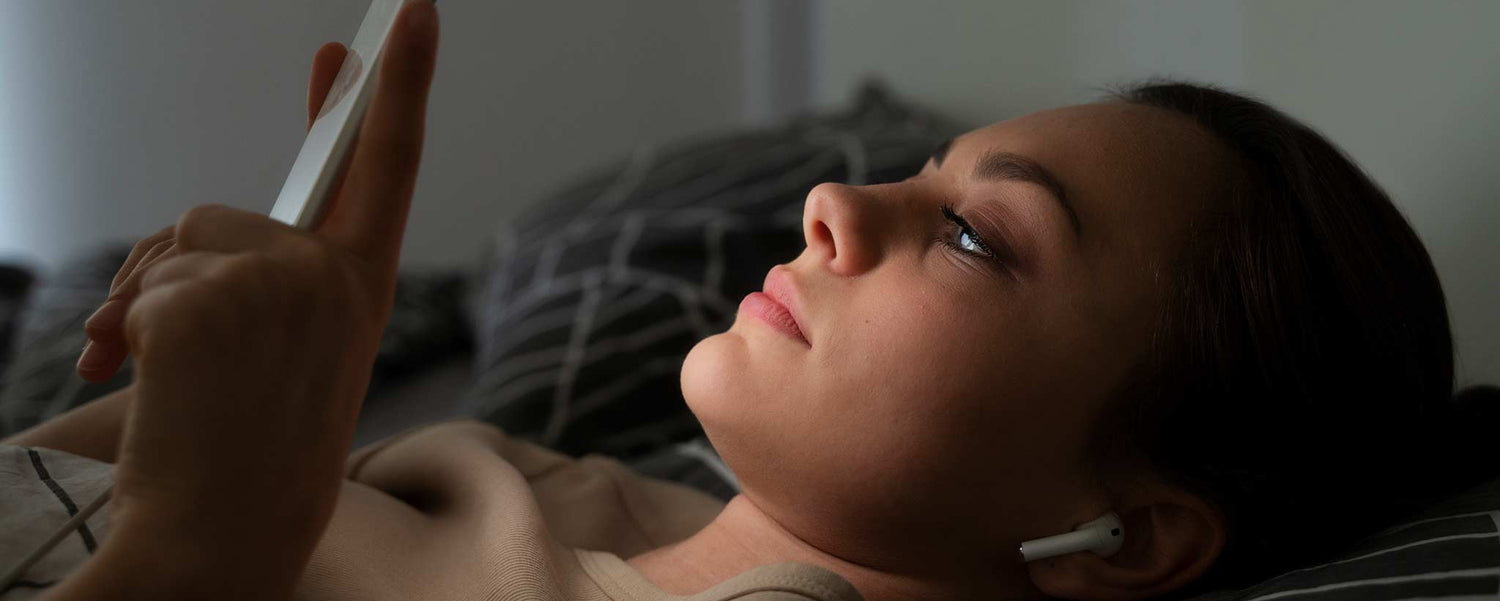A young woman weighs the risks of romance with a possible pregnancy. Follow her introspective research on contraceptive options, including birth control pills.
How Does The Pill Work?
Julia lies on her bed, her mind swirling with thoughts and worries. At 19 years old, she’s reached an age where dating has become more prominent in her life. Recently, she received an invitation for a date from a charming guy she met at a coffee shop. Excitement and nervousness intertwine within her as she contemplates whether accepting the invitation would be the right choice.
In the privacy of her bedroom, Julia pulls out her phone and begins her research, determined to gather as much information as possible. She navigates through countless articles, reading about various contraceptive options. Among them, the contraceptive pill catches her attention. She opens a website and starts reading out loud as if discussing her findings with an imaginary confidant.
“The contraceptive pill… It’s a hormonal method that prevents ovulation. So, if I start taking it, it should significantly reduce my chances of getting pregnant, right?” Julia ponders aloud, her voice tinged with curiosity.
Are Birth Control Pills Effective?
She scrolls through the article, absorbing the details. Her eyes widen as she learns about the effectiveness of the pill when used correctly, the convenience it offers, and the potential side effects. Questions arise in her mind: “What if I forget to take a pill? Will it still protect me? Are there any risks involved?”
💊 No contraceptive method is 100% foolproof. Factors such as missed pills, interactions with certain medications, and gastrointestinal illnesses can decrease the pill’s effectiveness.
Her brows furrow as she delves deeper into the topic. “It says here that the pill is more than 99% effective when taken correctly. But what about the cases where women still get pregnant while on the pill? How does that happen?” Julia’s voice reflects her perplexity.
She clicks another link that sheds light on the subject. As she reads about the importance of consistent and precise pill usage, she realizes that even the slightest deviation, like missing a pill or taking it at irregular intervals, can increase the risk of pregnancy. Human error, such as missed pills or inconsistent usage, can lead to a higher failure rate. The realization brings a wave of caution, making her consider the responsibility and commitment required.
Julia wonders about the accessibility of this contraceptive method. In many countries, the contraceptive pill is available by prescription only. This is because it contains hormones and requires medical supervision to ensure safe and appropriate usage.
There are some women for whom hormonal contraceptives have always carried greater risks. For example, women who have breast cancer or a history of breast cancer should not use hormonal contraceptives, the FDA said in a news release. Women with other types of cancer should consult their doctors first. Women who smoke, who take some medications to lower blood pressure, or who have migraines should also be cautious.
Julia is surprised to learn of the medical reasons for taking the pill. Women may consider starting the pill for managing irregular or painful periods, reducing symptoms of premenstrual syndrome, and treating certain medical conditions like polycystic ovary syndrome (PCOS).
Is The Pill Really Necessary?
Her gaze shifts to the calendar hanging on her wall, contemplating the implications of starting the pill. “If I decide to go on a date, there’s a possibility it could lead to a physical relationship. Taking the pill could provide an added layer of protection, but I also need to be mindful of potential side effects. It’s a lot to consider.”
Pausing the contraceptive pill for a couple of weeks can significantly impact its efficacy. It takes time for the hormonal levels to stabilize and for the pill to resume its contraceptive effect. Taking the pill just before intercourse, after pausing for a couple of weeks, is not sufficient to restore its full effectiveness.
Thoughts of her future, her goals, and the importance of making informed decisions envelop Julia’s mind. She mulls over the idea of taking control of her reproductive health, knowing that understanding the options available to her is a crucial step.
Without the pill, Julia has been selective about dating and how far she allows things to go with a man. She wonders if the pill will relax her and make her more promiscuous. “Could it lower my standards and possibly lead to infections?”
After a few more moments of contemplation, Julia places her phone down, a newfound sense of clarity washing over her. She realizes that while the pill can offer protection against unplanned pregnancies, it is just one option among many. She contemplates other non-hormonal methods, like condoms, that can also provide effective contraception while reducing concerns about side effects.
The contraceptive pill does not prevent sexually transmitted infections (STIs). So alternative contraception methods are recommended for comprehensive protection.
The fantasy of requiring birth control is more prevalent than her current opportunities. She wonders if other women who aren’t in relationships take the pill just in case a situation requiring it arises.
With a deep breath, Julia decides to take her time, weigh her choices carefully, and prioritize open communication and shared responsibility if and when she decides to embark on a romantic journey. She feels empowered by the knowledge she has gained, knowing that the decision is ultimately hers to make, and she will choose what aligns with her values, desires, and aspirations.
As Julia sets her phone aside, a newfound confidence begins to blossom within her. She understands that it’s not just about preventing pregnancy but also about taking control of her own body and making decisions that honor her well-being. With her newfound knowledge and perspective, she feels ready to navigate the world of dating with a sense of empowerment and clarity.
Enjoy more articles about women About 1000 total words.
ClinicalPosters offers human anatomy charts, scientific posters, and other services that compliment articles about women. Slide extra posters into DeuPair Frames without removing from the wall.
Show your support by leaving an encouraging comment to keep the research going.
Support the writing of useful articles about women by exploring human anatomy charts, scientific posters, and other products online. You may sponsor specific articles.
ClinicalPosters provides human anatomy charts, scientific posters, and other products that compliment useful articles about women.
ClinicalPosters offers human anatomy charts, scientific posters, and other products online.
You can sponsor useful articles about women or donate to further research.
UPDATED 2025 – This article reflects editorial revisions since its original publication.
FAQ: Considerations before taking a contraceptive pill
Can conception result from a missed pill?
No contraceptive method is 100% foolproof. Factors such as missed pills, interactions with certain medications, and gastrointestinal illnesses can decrease the pill’s effectiveness.
What are the inherent risks of prolonged birth control pills?
For some women, hormonal contraceptives carry greater risks: Women with breast cancer or a history of breast cancer; women with other types of cancer should consult their doctors first. Women who smoke, who take medications to lower blood pressure, or who have migraines should also be cautious.
What cautions exist even with the pill?
The contraceptive pill does not prevent sexually transmitted infections (STIs).






 Romance & Health Intertwine. Fall in love with a captivating romance miniseries that explores the essence of well-being. Become a ClinicalNovellas member for heartwarming tales.
Romance & Health Intertwine. Fall in love with a captivating romance miniseries that explores the essence of well-being. Become a ClinicalNovellas member for heartwarming tales.




